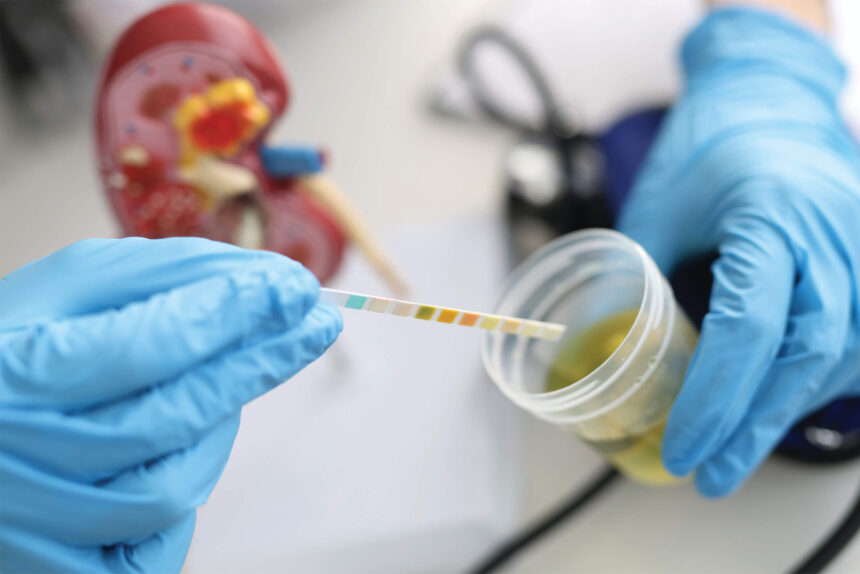Urine can tell us a lot about what’s happening inside our bodies. It’s often a clear indicator (pun intended) of our health status. While most people don’t give a second thought to their urine unless there’s a noticeable issue, being aware of changes in your urine can be an early warning sign of various health conditions, including sexually transmitted infections (STIs) and more. Let’s explore what different urine appearances and smells might indicate.
1. Cloudy Urine: Symptom of STI?
- Appearance & Smell: Cloudy or murky urine, possibly with a strong odor.
- What It Means: While cloudy urine can be a sign of an STI, particularly chlamydia or gonorrhea, it can also indicate urinary tract infections (UTIs), kidney stones, or dehydration. A medical check-up is advised to determine the exact cause.
2. Bright Yellow Urine
- Appearance & Smell: Neon or bright yellow, often with a strong smell.
- What It Means: This is usually caused by excess B-vitamins and is often harmless. It can occur due to vitamin supplements or fortified foods.
3. Dark Yellow or Orange Urine
- Appearance & Smell: Deep yellow to orange, may have a slight odor.
- What It Means: Can indicate dehydration. However, it could also be a sign of liver issues, particularly if accompanied by light-colored stools and jaundice.
4. Red or Pink Urine
- Appearance & Smell: Pinkish to red, sometimes with a slightly different odor.
- What It Means: Commonly caused by foods like beets or berries. However, it can also indicate blood in the urine, possibly from kidney stones, infections, or bladder issues.
5. Brown Urine
- Appearance & Smell: Brown or tea-colored, often with a strong odor.
- What It Means: Can be a sign of severe dehydration or liver disorders like hepatitis.
6. Foamy or Fizzy Urine
- Appearance & Smell: Foamy, with no significant change in odor.
- What It Means: Often harmless, but persistent foaminess can indicate excess protein in the urine, a sign of kidney problems.
7. Strong Ammonia Smell
- Appearance & Smell: Clear to yellow, with a strong ammonia odor.
- What It Means: Usually a sign of dehydration. Drinking more water typically resolves it.
8. Sweet Smelling Urine
- Appearance & Smell: Normal appearance but with a sweet or fruity odor.
- What It Means: Can be a symptom of diabetes. High blood sugar levels can give urine a sweet or fruity smell.
9. Milky or Turbid Urine
- Appearance & Smell: Milky or cloudy with a distinct odor.
- What It Means: May indicate urinary tract infections, kidney stones, or in rare cases, phosphate buildup.
10. Blue or Green Urine
- Appearance & Smell: Unusual blue or green tint, often without a strong odor.
- What It Means: Typically caused by certain medications, food dyes, or medical conditions like familial hypercalcemia.
11. No Color or Transparent
- Appearance & Smell: Completely clear, like water.
- What It Means: Usually a sign of overhydration. While staying hydrated is important, too much water can dilute essential electrolytes.
12. Urine with Sediment
- Appearance & Smell: Cloudy with visible particles, mild to strong odor.
- What It Means: Sediment can indicate kidney stones or infections.
13. Musty Smell
- Appearance & Smell: Normal appearance but musty or fishy smell.
- What It Means: Could be a sign of liver disease or certain metabolic disorders.
14. Consistent Lack of Odor
- Appearance & Smell: Normal appearance but consistently no odor.
- What It Means: Generally normal, but a complete lack of odor over time might indicate kidney problems in rare cases.
Maintaining Good Urinary Health
Good urinary health is essential for overall well-being. The urinary system plays a crucial role in filtering and eliminating waste products from the body. Maintaining its health requires a combination of good lifestyle habits, dietary choices, and regular check-ups. Here are key ways to promote and maintain good urinary health:
Stay Hydrated
Importance: Drinking enough water is the most fundamental step in maintaining urinary health. It helps dilute the urine, ensuring that waste products are effectively flushed out, reducing the risk of urinary tract infections and kidney stones.
Recommendation: Aim for at least 8-10 glasses of water a day, though this can vary based on activity level and climate.
Maintain a Balanced Diet
Importance: A diet rich in fruits, vegetables, whole grains, and lean proteins can help keep the urinary system functioning properly.
Recommendation: Include foods high in antioxidants and vitamins, which can help prevent infections and support overall kidney health.
Practice Good Hygiene
Importance: Proper hygiene is crucial in preventing urinary infections, especially for women.
Recommendation: For women, wiping from front to back after using the toilet and urinating after intercourse can help prevent bacteria from entering the urethra.
Avoid Irritants
Importance: Certain substances can irritate the bladder, including caffeine, alcohol, spicy foods, and artificial sweeteners.
Recommendation: Limit intake of these irritants, especially if you are prone to urinary tract infections or bladder sensitivity.
Empty Your Bladder Regularly
Importance: Holding in urine for prolonged periods can increase the risk of bladder infections and kidney problems.
Recommendation: Try to urinate every three to four hours. Fully emptying the bladder when urinating is also important.
Stay Active
Importance: Regular physical activity can help maintain a healthy weight, reducing the risk of urinary incontinence and kidney problems.
Recommendation: Incorporate a mix of aerobic, strength, and flexibility exercises into your routine.
Avoid Smoking
Importance: Smoking increases the risk of bladder cancer and can worsen incontinence.
Recommendation: If you smoke, seek help to quit. There are many resources available, from nicotine replacement therapies to support groups.
Regular Health Check-Ups
Importance: Routine health screenings can help detect urinary system problems early.
Recommendation: Include urinary health as a part of your regular medical check-up, especially if you have risk factors for kidney problems or urinary tract issues.
By following these guidelines, you can help ensure good urinary health. Remember, if you experience persistent changes in your urinary habits, pain, or any other concerning symptoms, it’s important to consult with a healthcare professional. Early detection and treatment of urinary issues are key to maintaining good health and quality of life.








